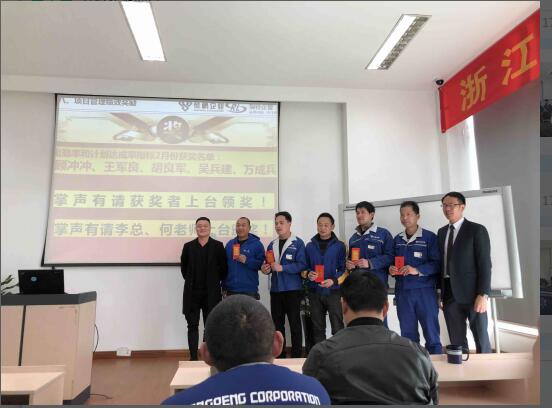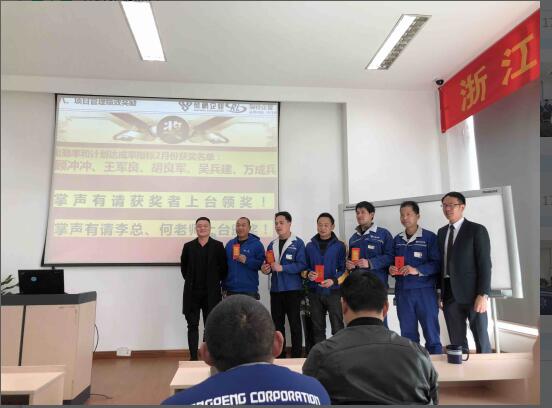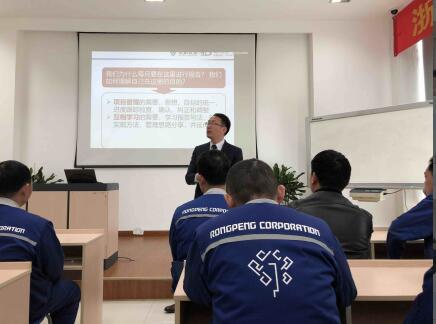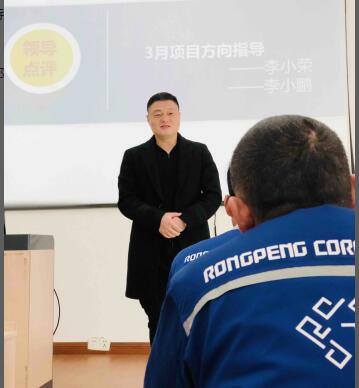

Rongpeng’s TPS Implementation 2019
Since the implementation of TPS in 2005, Rongpeng air tools has upgraded the company's product quality to a new level in 2019. The problem has been solved on a case-by-case basis, and monthly progress reports are reported. Management personnel participate in listening to work progress reports and improvement measures.

Reward the do well people in TPS implementtion:

TPS team explain the TPS spirit, rongpeng staff listened very seriously.

The chairman of the board encourages everyone to learn the essence of TPS and apply it to their daily work.
Okay,now let's learn what is the TPS:
The Toyota Production System (TPS) is an integrated socio-technical system, developed by Toyota, that comprises its management philosophy and practices. The TPS organizes manufacturing and logistics for the automobile manufacturer, including interaction with suppliers and customers. The system is a major precursor of the more generic "lean manufacturing". Taiichi Ohno and Eiji Toyoda, Japanese industrial engineers, developed the system between 1948 and 1975.
Originally called "just-in-time production", it builds on the approach created by the founder of Toyota, Sakichi Toyoda, his son Kiichiro Toyoda, and the engineer Taiichi Ohno. The principles underlying the TPS are embodied in The Toyota Way.
The main objectives of the TPS are to design out overburden (muri) and inconsistency (mura), and to eliminate waste (muda). The most significant effects on process value delivery are achieved by designing a process capable of delivering the required results smoothly; by designing out "mura" (inconsistency). It is also crucial to ensure that the process is as flexible as necessary without stress or "muri" (overburden) since this generates "muda" (waste). Finally the tactical improvements of waste reduction or the elimination of muda are very valuable. There are eight kinds of muda that are addressed in the TPS:
1. Waste of overproduction (largest waste)
2. Waste of time on hand (waiting)
3. Waste of transportation
4. Waste of processing itself
5. Waste of stock at hand
6. Waste of movement
7. Waste of making defective products
8. Waste of underutilized workers
The elimination of waste has come to dominate the thinking of many when they look at the effects of the TPS because it is the most familiar of the three to implement. In the TPS many initiatives are triggered by inconsistency or over-run reduction which drives out waste without specific focus on its reduction.